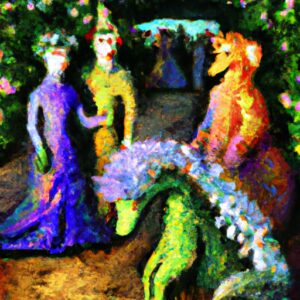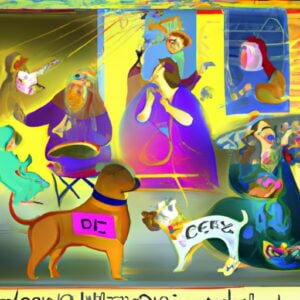What does può darsi che mean in Italian?
In this post, we’re going to focus on one of those expressions that are followed by the Italian subjunctive: the equivalent of it may be that.
We say può darsi che in Italian, which means it can be given that. And we use it when we’re not sure about what we’re going to say.
This is why it triggers the subjunctive, a tense that expresses doubt, uncertainty, or a hypothetical situation.
Let’s find out how to use può darsi che!
How to form può darsi che + subjunctive?
As we said, può darsi che is always followed by subjunctive verbs in all tenses.
These are the four subjunctive tenses you can use:
- Congiuntivo presente (present subjunctive) is used to talk about present events.
- Congiuntivo passato (past subjunctive) is used to discuss past events that happened at a specific time.
- Congiuntivo imperfetto (imperfect subjunctive) is used to speak about events in the past that happened over a prolonged period of time.
- Congiuntivo trapassato (past perfect subjunctive) is used to refer to an event that happened before another event, which may not necessarily be mentioned.
How to use può darsi che?
We say può darsi che when we’re doubting something.
This expression is a set phrase, so we always use those words together and never split them.
We always use può in the present tense, even if we’re talking about something in the past.
If we’re referring to a past event, what is going to be in the past tense is the verb in the subjunctive, as you can see in the example:
Può darsi che non volesse parlare con te.
It may be that he didn’t want to speak to you.
Può darsi che: examples
Let’s have a look at some examples with the four subjunctive tenses:
- Congiuntivo presente
Può darsi che Marco non venga stasera.
It may be that Marco is not coming tonight.
- Congiuntivo passato
Secondo me può darsi che abbia detto la verità.
To me, it may be that she said the truth.
- Congiuntivo imperfetto
Può darsi che dicesse sul serio.
It may be that he was talking seriously.
- Congiuntivo trapassato
Può darsi che non avesse capito la mia intenzione.
It may be that he didn’t understand my intention.










7 Responses
Can we use puo darsi que without subjunctive?
Ciao Anna! In Italian, the phrase “può darsi che” is typically followed by the subjunctive mood. This is because it’s used to express doubt, uncertainty, or a hypothetical situation. For example, “Può darsi che lui venga domani” translates to “It may be that he is coming tomorrow.” The verb “venga” is in the subjunctive mood. If you were to use the indicative mood instead, the sentence would lose its sense of uncertainty. I hope this helps! If you have any more questions, feel free to ask.
Ciao! I have a question: what is the difference between “può darsi che” e “piuttosto che”?
Grazie!
Ciao Wendy!
I’m Julieta, Stefano’s assistant.
“Piuttosto che” is a congiunzione avversativa (adversative conjunction) and expresses a preference between two elements in a sentence.
For example: Preferisco prendere l’aereo piuttosto che viaggiare per mare.
It can be swapped for “invece di” o “anziché”.
But be careful because it is an error to understand “piuttosto che” as an or.
“Può darsi che” is an avverbio (adverb) which means it modifies the verb. In this case, is used for expressing that something could happen and that there is a certain probability but we are not 100% certain.
For example: Può darsi che mi sbagli ma pare che tu sia arrabbiato con me.
Please let me know if this explanation was clear enough for you to understand the difference.
Ciao @julieta!
Grazie mille!
I think I understood 🙂
Ciao Stefano
Hi visto una pubblicità sul tuo sito dicendo che ci sia un app . Puoi dirmi quando sarà disponibile per noi?
Grazie
Nigel
“Può darsi che” sia pronta a ottobre. 🙂